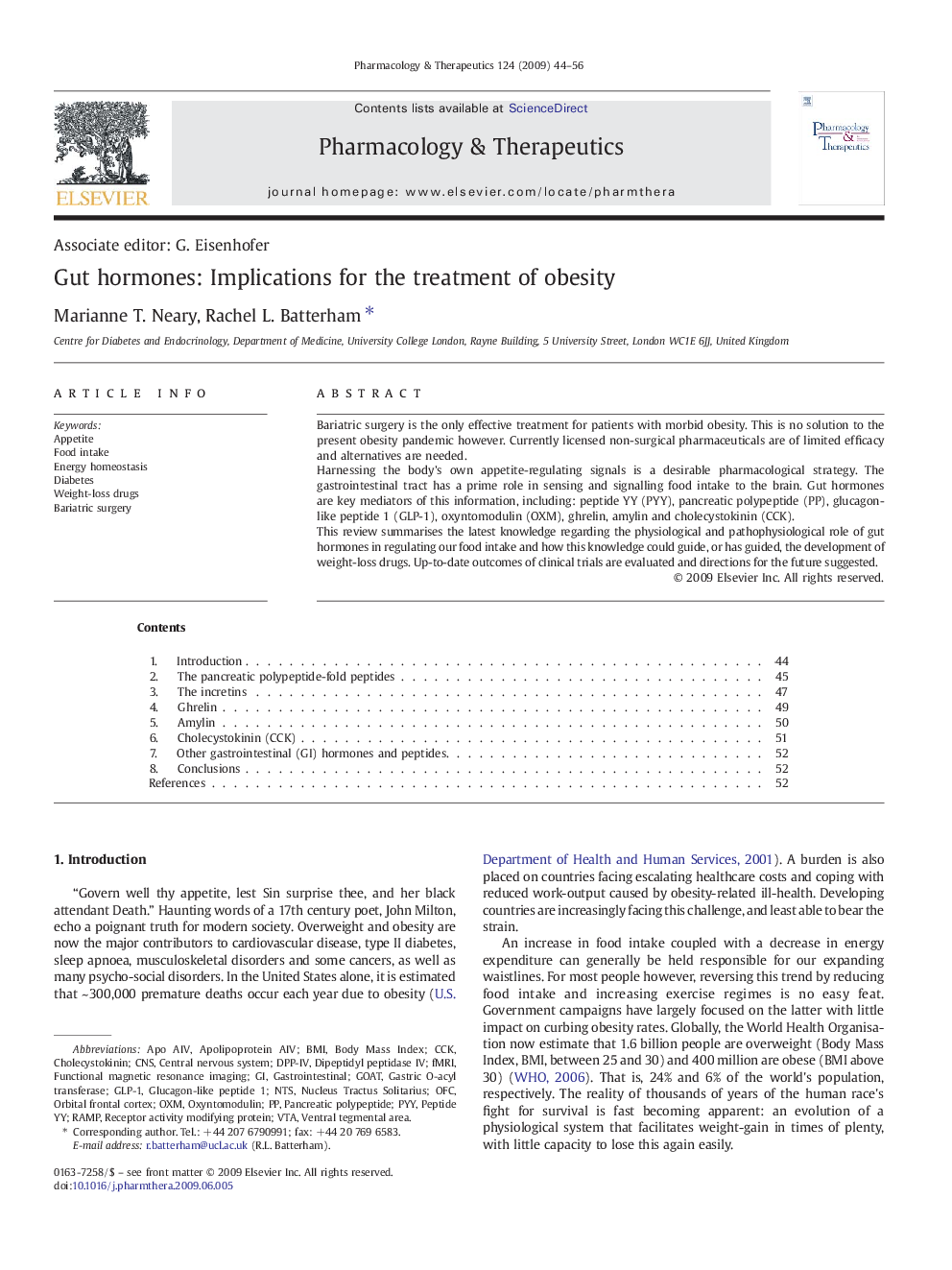| Article ID | Journal | Published Year | Pages | File Type |
|---|---|---|---|---|
| 2563611 | Pharmacology & Therapeutics | 2009 | 13 Pages |
Bariatric surgery is the only effective treatment for patients with morbid obesity. This is no solution to the present obesity pandemic however. Currently licensed non-surgical pharmaceuticals are of limited efficacy and alternatives are needed.Harnessing the body's own appetite-regulating signals is a desirable pharmacological strategy. The gastrointestinal tract has a prime role in sensing and signalling food intake to the brain. Gut hormones are key mediators of this information, including: peptide YY (PYY), pancreatic polypeptide (PP), glucagon-like peptide 1 (GLP-1), oxyntomodulin (OXM), ghrelin, amylin and cholecystokinin (CCK).This review summarises the latest knowledge regarding the physiological and pathophysiological role of gut hormones in regulating our food intake and how this knowledge could guide, or has guided, the development of weight-loss drugs. Up-to-date outcomes of clinical trials are evaluated and directions for the future suggested.
